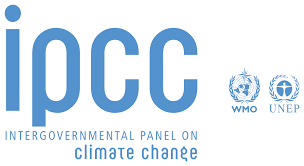CURRENT AFFAIRS
Get the most updated and recent current affair content on Padhaikaro.com
IPCC Report
- IAS NEXT, Lucknow
- 03, Mar 2022

Reference News:-
The second part of the IPCC’s Sixth Assessment Report was released recently.
- This second part of the report is about climate change impacts, risks and vulnerabilities, and adaptation options.
- The first part of the report was released in August last year. That one was centred around the scientific basis of climate change.
What is the Sixth Assessment Report (AR6)?
The Sixth Assessment Report (AR6) of the United Nations Intergovernmental Panel on Climate Change (IPCC) is the sixth in a series of reports intended to assess scientific, technical, and socio-economic information concerning climate change.
- This report evaluates the physical science of climate change – looking at the past, present, and future climate.
- It reveals how human-caused emissions are altering our planet and what that means for our collective future.
The Assessment Reports, the first of which had come out in 1990, are the most comprehensive evaluations of the state of the earth’s climate.
- So far five reports have been released (1990, 1995, 2001, 2007 and 2015).
Highlights of the report:
- The latest report has, for the first time, made an assessment of regional and sectoral impacts of climate change.
- It has included risks to, and vulnerabilities of, mega-cities around the world. For example, it has said Mumbai is at high risk of sea-level rise and flooding, while Ahmedabad faces serious danger of heat-waves.
Impact on health:
For the first time, the IPCC report has looked at the health impacts of climate change.
- It has found that climate change is increasing vector-borne and water-borne diseases such as malaria or dengue, particularly in sub-tropical regions of Asia.
- It has also said deaths related to circulatory, respiratory, diabetic and infectious diseases, as well as infant mortality, are likely to increase with a rise in temperature.
- Increasing frequency of extreme weather events like heat waves, flooding and drought, and even air pollution was contributing to under-nutrition, allergic diseases and even mental disorders.
India specific study:
The report identifies India as one of the vulnerable hotspots, with several regions and important cities facing very high risk of climate disasters such as flooding, sea-level rise and heat-waves. Mumbai is at high risk of sea-level rise and flooding.
Ahmedabad faces serious danger of heat-waves.
- Several cities, including Chennai, Bhubaneshwar, Patna and Lucknow, are approaching dangerous levels of heat and humidity.
- Infrastructure, including transportation, water, and sanitation and energy systems has been compromised by extreme and slow-onset events, with resulting economic losses, disruptions of services and impacts to well- being.
- Urban India is at greater risk than other areas with a projected population of 877 million by 2050, nearly double of 480 million in 2020.
- At present, wet-bulb temperatures in India rarely exceed 31 degrees C, with most of the country experiencing maximum wet-bulb temperatures of 25-30 degrees C, according to IPCC.
Significance of IPCC Reports:
IPCC reports form the scientific basis on which countries across the world build their policy responses to climate change.
- These reports, on their own, are not policy prescriptive: They do not tell countries or governments what to do. They are only meant to present factual situations with as much scientific evidence as is possible.
- And yet, these can be of immense help in formulating the action plans to deal with climate change.
- These reports also form the basis for international climate change negotiations that decide on the responses at the global level. It is these negotiations that have produced the Paris Agreement, and previously the Kyoto Protocol.
Intergovernmental Panel on Climate Change (IPCC):
- It is an intergovernmental body of the United Nations responsible for advancing knowledge on human-induced climate change.
- It was established in 1988 by the World Meteorological Organization (WMO) and the United Nations Environment Programme (UNEP).
- Headquarter: Geneva, Switzerland.
- Function: To provide policymakers with regular assessments of the scientific basis of climate change, its impacts and future risks, and options for adaptation and mitigation.